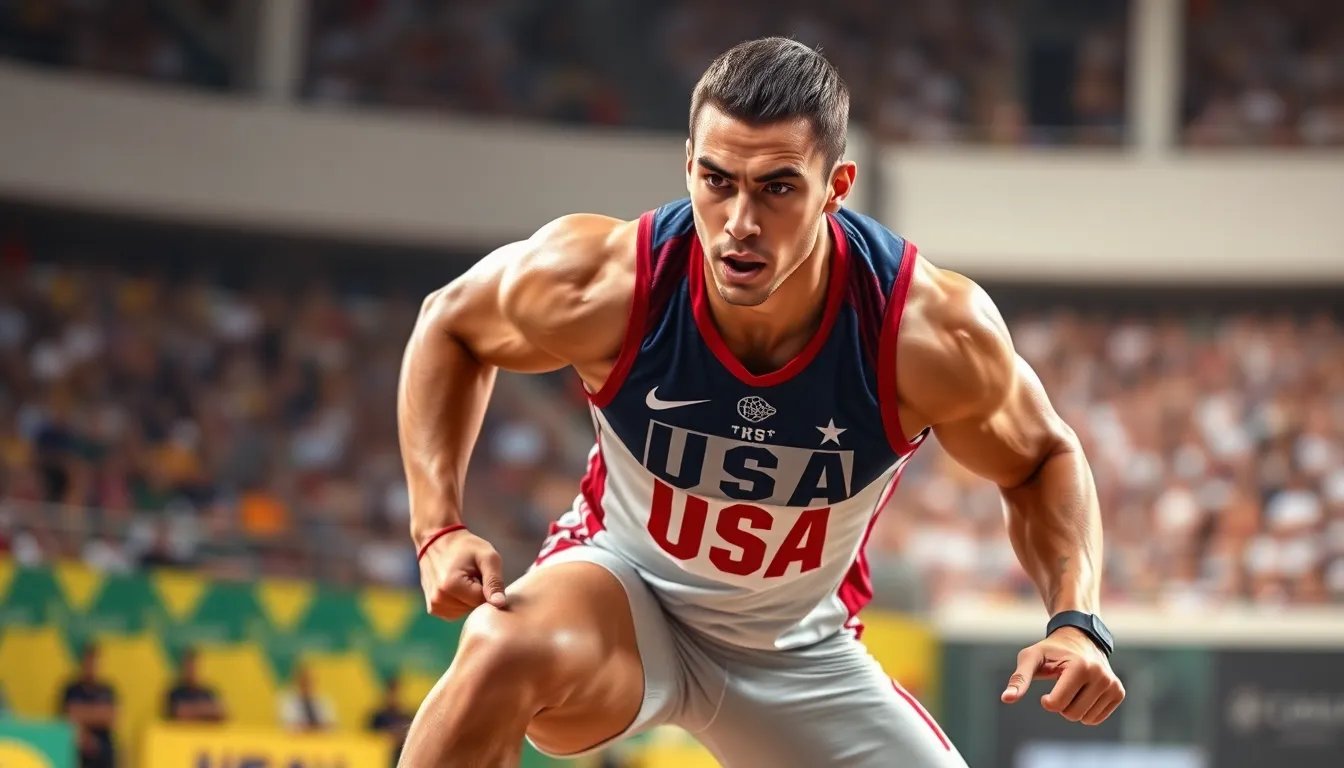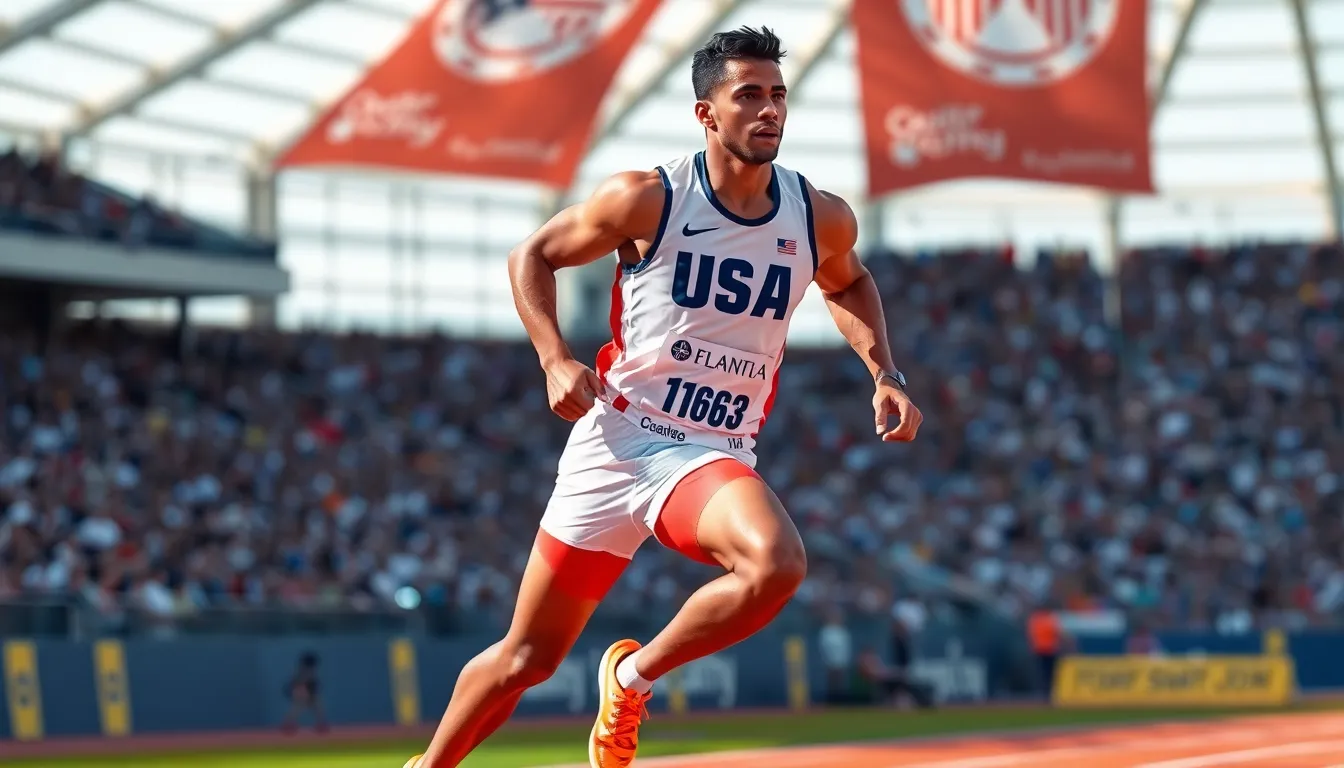In a world where most people struggle to find their keys, elite athletes are out there breaking records and defying gravity. These extraordinary individuals train relentlessly, pushing their bodies to the limit while making it look as easy as pie—if pie were a high-speed sprint or a flawless triple axel. They’re not just athletes; they’re living proof that the human spirit can soar to unimaginable heights with a little sweat and a whole lot of determination.
Ever wondered what sets these elite athletes apart? It’s not just their insane talent or their ability to do things like run a mile in under four minutes. It’s their unwavering mindset, their dedication to the grind, and the sheer joy they find in competing. Dive into the world of elite athletes and discover what it truly takes to reach the pinnacle of performance, where every second counts and every victory is hard-earned.
Elite Athlete
An elite athlete embodies exceptional skill, discipline, and commitment. These individuals participate at the highest level of their sport. Athletic prowess, coupled with years of rigorous training, defines their ability to excel in competition. Results consistently showcase their remarkable talent, often resulting in world records and gold medals.
Physical capabilities alone aren’t sufficient; mental strength plays a crucial role. Elite athletes maintain a focused mindset and resilience under pressure. They approach challenges with determination, reflecting an unwavering dedication to their craft.
A robust support system contributes significantly to their success. Coaches, nutritionists, and sports psychologists often guide elite athletes in various aspects of their training. Each component, including tailored workout regimens and dietary plans, reinforces their performance and recovery.
Passion fuels their pursuit of excellence. Elite athletes often express joy in competing, making sacrifices in personal lives for sports. They inspire others with their achievements while promoting the importance of hard work and perseverance.
Sustaining peak physical condition entails strict routines and consistent effort. Most elite athletes follow a rigorous training schedule, including strength, endurance, and skill development. Goals are set with precision, measured in short and long-term achievements.
Elite athletes distinguish themselves through dedication, exceptional abilities, and a relentless drive to succeed. Their journeys inspire admiration, showcasing what it takes to achieve greatness in sports.
Characteristics of Elite Athletes

Elite athletes demonstrate specific traits that contribute to their exceptional performance and achievements. Recognizing these characteristics provides insight into their unique capabilities.
Physical Attributes
Elite athletes possess outstanding physical attributes essential for high-level performance. Exceptional strength and agility set them apart from their peers. Endurance plays a critical role, allowing them to sustain efforts during intense competitions. Flexibility enhances their overall athletic performance, reducing injury risk. Additionally, speed and explosiveness create advantages in various sports. This combination of factors results in superior athleticism, contributing to noteworthy accomplishments, including world records and championship titles.
Mental Toughness
Mental toughness distinguishes elite athletes in high-pressure environments. They exhibit resilience, enabling them to bounce back from setbacks and maintain focus amidst adversity. Strong concentration skills help them stay present during competitions, minimizing distractions. Additionally, self-discipline promotes rigorous training routines and commitment to goals. Elite athletes often harness visualization techniques to enhance performance, mentally rehearsing skills and strategies before executing them. This robust psychological framework empowers athletes to push boundaries, achieving remarkable feats consistently.
Training Regimens
Elite athletes commit to training regimens that elevate their performance and enhance overall well-being. This process integrates various aspects, including nutrition and recovery strategies, to ensure athletes achieve peak performance.
Importance of Nutrition
Nutrition plays a critical role in an elite athlete’s training regimen. Balanced diets fuel workouts, optimizing energy levels to sustain rigorous training sessions. Adequate protein intake supports muscle recovery and growth, while carbohydrates provide necessary energy for endurance. Vitamins and minerals strengthen the immune system, crucial for maintaining health throughout the competition season. Hydration is equally essential, as it prevents fatigue and supports overall physical performance. Elite athletes often work closely with nutritionists to develop tailored meal plans that match their specific needs, ensuring each nutrient contributes to their success.
Recovery Strategies
Recovery strategies are fundamental to the training routines of elite athletes. Active recovery sessions, such as light workouts, promote blood flow and reduce muscle soreness. Incorporating rest days into weekly schedules helps prevent overtraining, ensuring athletes remain fresh for intense workouts. Techniques like foam rolling and stretching enhance flexibility, while massages alleviate tension and pain in muscles. Sleep, often overlooked, plays a vital role in recovery; proper sleep restores energy and supports mental focus. Additionally, elite athletes may utilize methods such as cryotherapy and hydrotherapy to expedite recovery, enabling them to return to training in optimal condition.
The Role of Coaching
Coaching significantly impacts the development of elite athletes. Coaches provide tailored training programs that meet athletes’ specific needs, focusing on skill enhancement and performance improvement. In addition, they offer tactical guidance, helping athletes understand game strategies and opponent analysis. Communication plays a crucial role; effective coaches build strong relationships based on trust and respect.
Feedback is vital for growth. Coaches observe athletes during training and competition, offering constructive criticism that encourages better techniques and improved outcomes. Many elite athletes attribute their successes to this ongoing feedback, which fosters continuous development.
Psychological support complements physical training. Coaches often encourage mental toughness, emphasizing strategies like visualization and stress management. This guidance helps athletes perform under pressure, crucial during high-stakes competitions. As a result, the mental coaching aspect significantly strengthens the athlete’s overall performance.
Athletes also benefit from accountability. Coaches monitor training schedules and ensure adherence to nutrition plans, instilling discipline and focus. This structured approach aids in maintaining peak physical condition and fosters consistent effort in pursuit of goals.
Team dynamics are another highlight. Coaches cultivate a positive team environment, fostering collaboration and camaraderie among athletes. Together, they thrive under the shared experiences of training and competition, pushing each other toward greatness.
Finally, elite coaches are lifelong learners. They analyze performance data, adapt strategies based on evolving sports science, and incorporate new techniques to improve training methodologies. With this commitment to growth, coaches elevate elite athletes to new heights, ensuring they remain competitive at the highest levels.
Impact on Performance
Elite athletes experience a multitude of factors that significantly impact their performance. Training regimens focus on enhancing physical attributes such as strength, agility, endurance, flexibility, speed, and explosiveness, which are crucial for excelling in competition. Mental toughness plays an essential role in this equation, as athletes demonstrate resilience, concentration, self-discipline, and visualization techniques, enabling them to perform at peak levels even under pressure.
Nutrition stands as a foundational component. Balanced diets, tailored to individual needs, fuel workouts and facilitate muscle recovery. Hydration strategies, complemented by detailed meal plans from nutritionists, ensure consistent energy levels are maintained throughout competitions.
Recovery strategies, integral to training routines, encompass multiple techniques. Active recovery sessions, including rest days, foam rolling, and stretching, support the physical aspect of recovery. Adequate sleep restores energy, while advanced methods like cryotherapy and hydrotherapy aid in mental resilience.
Coaching significantly influences athletic performance. Coaches craft personalized training programs, offering strategic guidance while fostering strong relationships with their athletes. Feedback from coaches drives growth and improvement, pushing athletes to refine their techniques. They also instill accountability by carefully monitoring training schedules and dietary habits.
Team dynamics contribute another layer to performance. Positive environments foster collaboration, enhancing the athletes’ emotional well-being. Lifelong learning characterizes elite coaches, as they adapt strategies based on progress in sports science, ensuring their athletes remain at the forefront of competition.
Together, these elements create a powerful synergy, enabling elite athletes to reach incredible heights in their sports. Dedication, unmatched ability, and relentless drive to succeed define these athletes, showcasing what it takes to excel at the highest levels.
Conclusion
Elite athletes exemplify the pinnacle of human potential through their unwavering dedication and exceptional skills. Their journey is a testament to the power of hard work and the importance of mental resilience. The intricate balance of rigorous training, strategic nutrition, and effective recovery methods plays a crucial role in their success.
Support from coaches and a strong team dynamic further enhances their performance, creating an environment where excellence thrives. These athletes not only inspire through their achievements but also embody the spirit of perseverance and commitment. By understanding the multifaceted approach that defines elite athletes, one can appreciate the extraordinary effort required to reach the highest echelons of sport.

